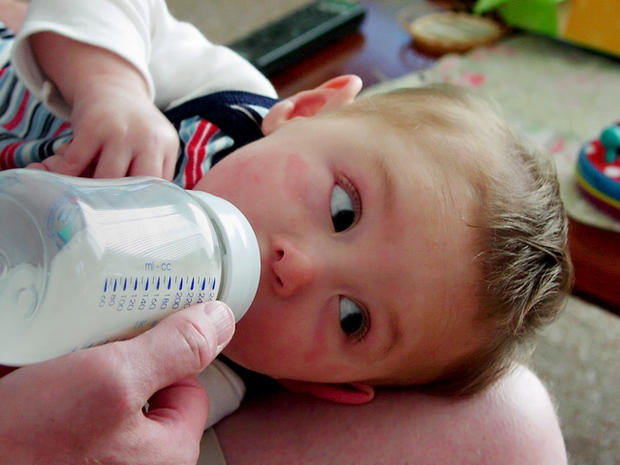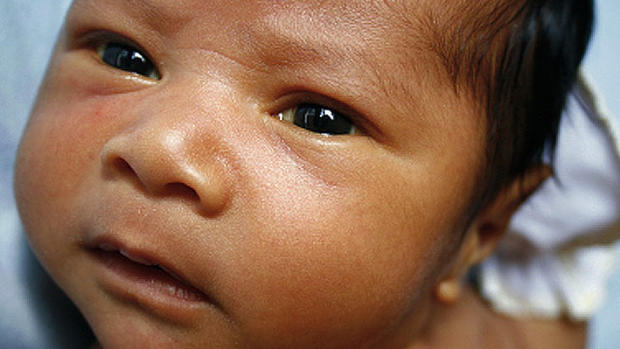Third baby gets rare bacterial infection: Infant formula to blame?
(CBS/AP) An Oklahoma infant has been sickened by a rare Cronobacter sakazakii infection that's sometimes linked to tainted infant formula. Health officials say the baby from Tulsa County - the third child to be infected by the bacteria this month - has fully recovered.
PICTURES: Best for babies? Top 20 nations for low newborn mortality
An Illinois child also rebounded after being sickened by the bacteria. A Missouri infant who was 10 days old died.
The Missouri child, Avery Cornett of Lebanon, had consumed Enfamil Newborn powdered infant formula made by Illinois-based Mead Johnson, CBS Newsreported. His death prompted national retailers including Wal-Mart Stores Inc., Walgreen Co., Kroger Co. and Safeway to pull a batch of the powdered infant formula from their shelves.
But health officials say the Oklahoma infant had not consumed Enfamil. And Mead Johnson this week reported that its own testing found no bacteria in the product.
So what could it be? U.S. officials are awaiting results from their own testing of powdered formula and distilled water - also known as "nursery water" - used to prepare formula.
The cases occurred in roughly the same area of the country but at this point, it's not clear that they are connected, said Barbara Reynolds, a spokeswoman for the CDC.
The rare infection can be treated with antibiotics, but it's still considered extremely dangerous for babies less than 1 month old and those born premature. An estimated 40 percent of illnesses from the bacteria end in death.
There are no legal requirements that cases be reported, but the CDC gets roughly four to six reports of Cronobacter sakazakii cases each year. This year there have been 10, but that doesn't necessarily mean cases are increasing. Attention over the Missouri death just may have prompted more, health officials said.
That's what happened for the Oklahoma child. That infant got sick earlier in December, but after Avery Cornett's death, the case "took on added significance" and was reported, said Larry Weatherford, a spokesman for the Oklahoma State Department of Health.
The bacteria is found naturally in the environment and in plants such as wheat and rice, but in the past also has been traced to dried milk and powdered formula. Powdered infant formula is not sterile, and experts have said there are not adequate methods to completely remove or kill all bacteria that might creep into formula before or during production.
The World Health Organization recommends that parents preparing infant formula should wash their hands with soap and water, sterilize all feeding equipment in hot, soapy water and preparing enough formula for only one feeding at a time.

